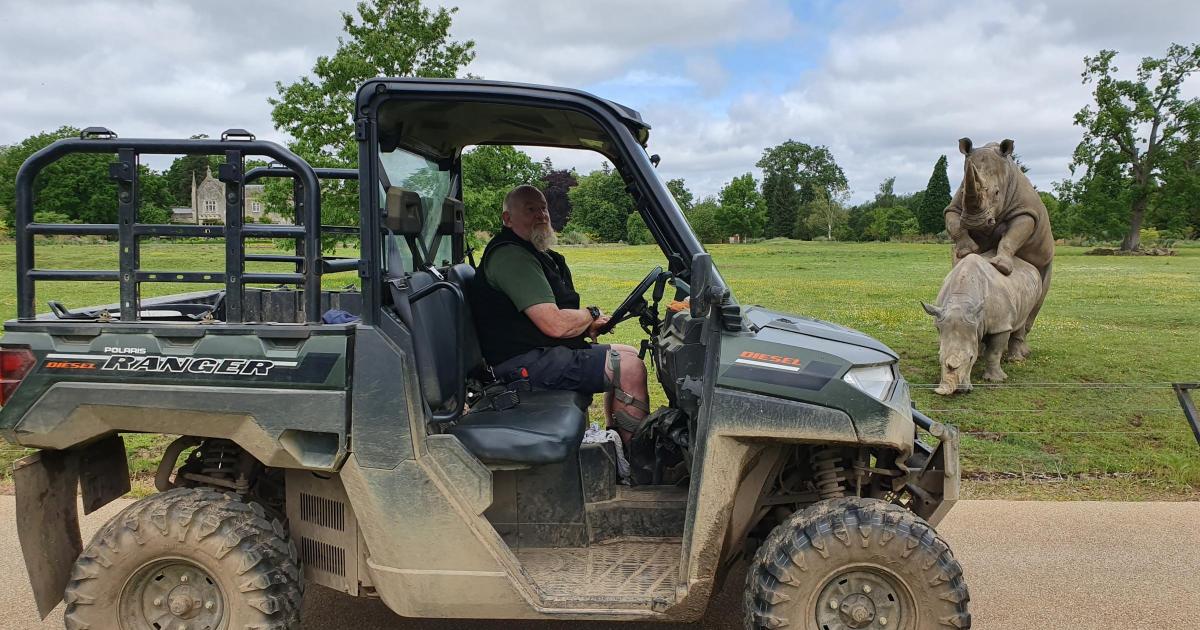The rare moment took place at Cotswold Wildlife Park and Gardens in Burford, which is the closest venue of its kind to Swindon.
The new addition, named Markus, is the twelfth rhino calf to be born at the park, and only the fifth white rhino to be born at any European zoo in 2025.
Markus is reported to be healthy and is nursing well from his mother, Nancy, who is described as an “exceptional and attentive” parent.
This is Nancy’s seventh calf with the breeding male Monty.
Rhino births are usually difficult to capture on film as the females typically give birth during the night.
However, the park keepers were fortunate enough to witness Nancy ending her 16-month pregnancy in less than 45 minutes.
Mammal keeper Liam Klingsick filmed the rare moment, while head keeper Mark Godwin, who has been working at the park for 35 years, also witnessed the event.
Mr Godwin said: “He’s one of most confident calves I’ve seen. Newborns weigh approximately 70kgs at birth and put on roughly 1.5-2kgs a day in weight. If he grows into his features, he will be a big lad”.
The birth of Markus brings the number of rhinos at the park up to eight, which is the highest number on show at any one time in the park’s fifty-five year history.
The youngster is proving to be a lively addition to the ‘crash’ – the noun for a group of rhinos – entertaining visitors with his energetic behaviour.
Visitors can see Markus daily from 10am in the solar-powered Rhino House or the large rhino paddock.
Females only reproduce every two to three years, so the window of opportunity for successful reproduction is limited.
The calf will remain under the watchful eye of its mother, suckling from her for approximately one year.
The new calf has been named Markus in honour of one of the most influential conservation scientists in Africa.
Reggie Heyworth, chairman of Cotswold Wildlife Park and Gardens, said: “We have named our new arrival, Nancy’s seventh calf, Markus after the late Doctor Markus Borner.
“He gave me my break into conservation when he was head of Frankfurt Zoological Society in Tanzania.
“By the time Markus died in 2020, Tanzania’s Serengeti ecosystem had substantially been re-populated with a potentially viable population of Black Rhinos and I’m not the only one who would find it difficult to think of anybody else who had more of a positive influence on that outcome than Markus Borner.”

